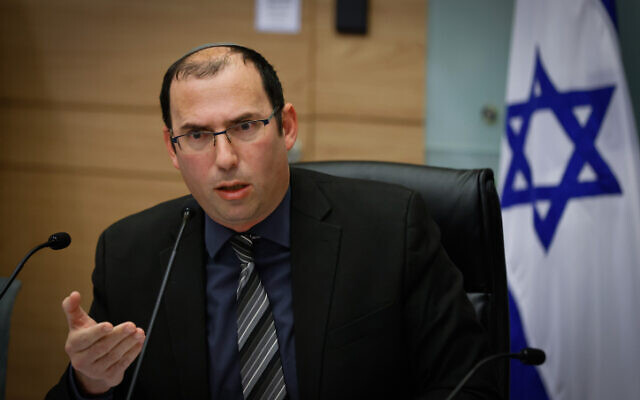In rare criticism of the legal system by a former senior official, Ran Nizri, who served as deputy attorney general until last year, said on Tuesday that the judiciary was in need of “substantial improvements” and “deserves” aspects of the criticism that has been leveled at it.
Speaking during a meeting of the Knesset Constitution, Law and Justice committee, Nizri noted, however, that he disagreed with key aspects of the government’s proposed overhaul of the legal system, saying that if passed in its proposed form it would damage Israel’s democratic nature.
The government’s sweeping reform agenda for the legal system has been subject to intense criticism from an array of former jurists, including High Court justices and attorneys general, and legal scholars.
Few if any former senior officials of such stature have spoken out in favor of the reforms, although some have conceded there might be room for more moderate change.
Nizri served as deputy under two attorneys general and in three fields from 2011 to 2022, including criminal law, public and constitutional law, and legal administration.
Get The Times of Israel's Daily Edition by email and never miss our top stories
The legislation proposed by the coalition would give the government complete control over the appointment of judges, severely restrict the High Court’s power of judicial review over legislation, allow the Knesset to override a High Court decision to strike down legislation, make legislation immune from judicial review at the beginning of the legislative process, prevent the High Court from reviewing Basic Laws, and prevent the court from using the principle of reasonableness to assess administrative decisions by the government and other state agencies.

Chairman of the Knesset Constitution, Law and Justice Committee MK Simcha Rothman leads a hearing, January 29, 2023. (Olivier Fitoussi/Flash90)
“The [legal] system is in need of substantial improvements and doesn’t know how to accept criticism,” Nizri told the committee in Tuesday’s hearing. “It has in my eyes justly earned aspects of the criticism [toward it]. For years they objected to changes ‘because it’s not the time.’
“The system must be corrected but not in the most extreme manner possible… The fact that the legal system has not made evolutionary changes does not mean that it must now be punished, and carry out a revolution that will harm the country.”
He added that the idea that nothing in the legal system requires change is “no less dangerous” than the government’s radical reform proposals, “because for one thing the current situation is not ideal, and second, the public is likely to feel that the political majority is being trampled on.”
Nizri called for “real dialogue,” for professionals in the legal system to demonstrate “openness” to change, and for both sides to act in good faith, including politicians, who he said were “going to extremes” in their positions.
“If the reform is passed as is, it will cause substantial harm to the democratic character of the country and its societal cohesion,” he added.

Chairman of the Knesset Constitution, Law and Justice Committee MK Simcha Rothman holds a hearing for legislation to overhaul Israel’s legal and judicial system, January 29, 2023. (Olivier Fitoussi/Flash90)
Nizri said he supported changing the composition of the Judicial Selection Committee, but did not back the proposals laid out by the coalition, which would give the government total control over at least five, and possibly seven, of the panel’s nine members, which he said would harm judicial independence.
Instead, Nizri said a solution needed to be found so that the members of the judiciary on the panel would not have a veto over appointments, while ensuring that judges could not be appointed only by committee members representing the governing coalition.
The former deputy attorney general also asserted that the proposal to allow the Knesset to override a High Court ruling striking down legislation by a vote of just 61 MKs was problematic, suggesting that a majority of 65 MKs would be more appropriate.
And he argued that canceling entirely the ability of the High Court to reverse government decisions of an administrative nature on the basis of the reasonableness doctrine was also problematic, since “it is a legal tool that defends the citizen,” but conceded that its use could be limited.
“Solutions should be found as soon as possible. We don’t have any other country,” Nizri concluded.


